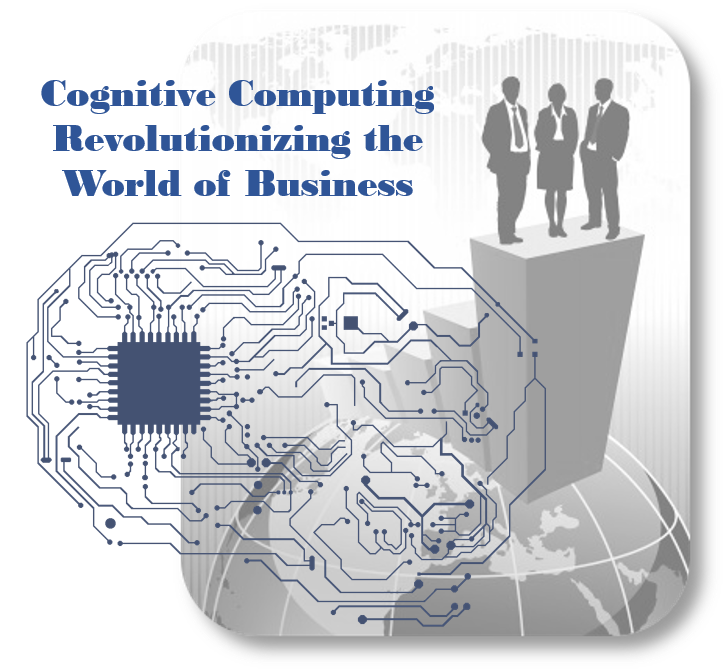The business environment and the technology supporting it are constantly changing. When Randy Mott, CIO at General Motors, was asked if the company’s digital transformation would ever be “done,” he responded, “Absolutely not. There’s not any area of our business that we don’t have the opportunity to improve with technology. Tech is constantly changing, presenting new opportunities. ‘Done’ is not really a word in my vocabulary. It should never end. If companies call it done, they fall behind.”[1] He added, “You don’t move from one technology to another. Companies have some of everything. I’ve lived through decades of this. What does transform is integrating things so they are well managed and serve a good purpose. … Technology isn’t the end goal. The goal is integration of that technology to serve customers. Some people lose their way and get into transformations of technology as opposed to transformations of business.” His observations are spot on. One of the reasons cognitive computing is gaining traction in the business world is because it’s a great integrating platform and is extremely adaptable. As reporters from IT-Online note, “Cognitive computing has nearly endless possibilities to improve business processes and functions.”[2]
Cognitive Computing and the Future of Business
Kevin Kelly (@kevin2kelly), founding Executive Editor of Wired magazine, has tweeted, “In the very near future you will cognify everything in your life that is already electrified.” That statement is certainly true for the business world. The staff at the Cognitive Computing Consortium (CCC) asserts, “Cognitive computing makes a new class of problems computable. It addresses complex situations that are characterized by ambiguity and uncertainty; in other words it handles human kinds of problems.”[3] Businesses must deal with human kinds of problems on a daily basis. The CCC staff adds:
“In these dynamic, information-rich, and shifting situations, data tends to change frequently, and it is often conflicting. The goals of users evolve as they learn more and redefine their objectives. To respond to the fluid nature of users’ understanding of their problems, the cognitive computing system offers a synthesis not just of information sources but of influences, contexts, and insights. To do this, systems often need to weigh conflicting evidence and suggest an answer that is ‘best’ rather than ‘right’. Cognitive computing systems make context computable. They identify and extract context features such as hour, location, task, history or profile to present an information set that is appropriate for an individual or for a dependent application engaged in a specific process at a specific time and place. They provide machine-aided serendipity by wading through massive collections of diverse information to find patterns and then apply those patterns to respond to the needs of the moment. Cognitive computing systems redefine the nature of the relationship between people and their increasingly pervasive digital environment. They may play the role of assistant or coach for the user, and they may act virtually autonomously in many problem-solving situations. The boundaries of the processes and domains these systems will affect are still elastic and emergent. Their output may be prescriptive, suggestive, instructive, or simply entertaining.”
The staff goes on to stress that cognitive computing platforms are adaptable, interactive, iterative and stateful (with both humans and other systems), and contextual. The Enterra Enterprise Cognitive System™ (ECS) — a system that can Sense, Think, Act and Learn® — is all of those things; but, it is especially adept at providing context. The ECS leverages the world’s largest commonsense ontology to ensure context is correct. The CCC staff notes, “[Cognitive computing systems] must understand, identify, and extract contextual elements such as meaning, syntax, time, location, appropriate domain, regulations, user’s profile, process, task and goal. They may draw on multiple sources of information, including both structured and unstructured digital information, as well as sensory inputs (visual, gestural, auditory, or sensor-provided). Cognitive systems differ from current computing applications in that they move beyond tabulating and calculating based on preconfigured rules and programs. Although they are capable of basic computing, they can also infer and even reason based on broad objectives.”
Serge Haziyeva, an IT architect, observes, “Cognitive Systems aim to handle real world problems, which are highly uncertain and may be influenced by potentially unlimited number of different factors, quality and consistency of their results highly depends on the number of factors they consider while making the decision. That brings yet another technological trade-off as the complexity of the problem grows tremendously with the number of the data sources. Aggregating and integrating the data from different data sources and processing it in a unified way is also challenging.”[4] The quality/consistency of solutions to such problems is highly sensitive to the decision process; in particular, its scope and the number and diversity of factors considered: the complexity of a problem is oftentimes reflected in the diversity of sources. Hence, the aggregation and integration of data from different sources, and its processing into useful representations, are important and pressing topics. Cognitive computing systems do a much better job of integrating large numbers of variables than traditional computers. In addition, the Enterra ECS can be complemented by the revolutionary capability, the Representational Learning Machine™ (RLM), created by Massive Dynamics™. The RLM can help determine what type of analysis is best-suited for the data involved in a high-dimensional environment. And, unlike traditional machine learning, in which predictions are generated in “black box” fashion, the RLM explains to users the drivers and patterns underlying predictions.
Summary
The staff from IT-Online report, “A full 73% of CEOs surveyed in a recent IBM study said [cognitive computing] will play a key role in their organizations’ future and all executives in the study anticipate a 15% return on investment from their cognitive initiatives.” Haziyeva concludes, “[A Cognitive computing system] urges digital solutions to meet human-centric requirements: act, think, and behave like a human in order to achieve maximum synergy from human-machine interaction.” Jennifer Zaino (@Jenz514) asserts, “Cognitive Computing increasingly will be put to work in practical, real-world applications. The industries that are adopting it are not all operating at the same maturity levels; there remain some challenges to conquer. The wheels are very much in motion to make cognitive-driven Artificial Intelligence (AI) applications a key piece of enterprise toolsets.”[5] Because cognitive computing systems are so adaptable, Accenture analysts call cognitive computing “the ultimate long-term solution” for many of businesses’ most nagging challenges.[6]
Footnotes
[1] Kim S. Nash, “GM’s Randy Mott: Digital Transformation Can Lead CIOs Astray,” The Wall Street Journal, 11 October 2017.
[2] Staff, “Era of cognitive computing is here,” IT-Online, 7 July 2017.
[3] Staff, “Cognitive Computing Defined,” Cognitive Computing Consortium.
[4] Serge Haziyeva, “Cognitive Computing: How to Transform Digital Systems to the Next Level of Intelligence,” Dataconomy, 11 January 2017.
[5] Jennifer Zaino, “Cognitive Computing, Artificial Intelligence Apps Have Big Future in the Enterprise,” Dataversity, 17 September 2015.
[6] “From Digitally Disrupted to Digital Disrupter,” Accenture, 2014.





